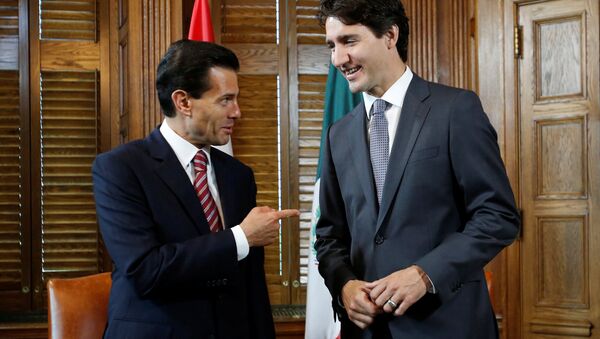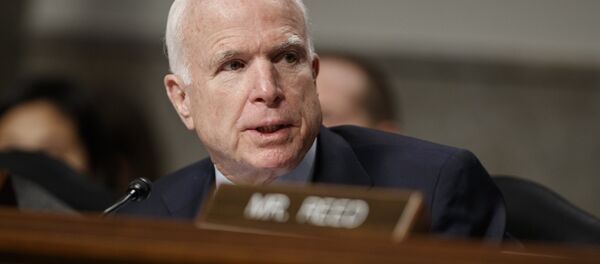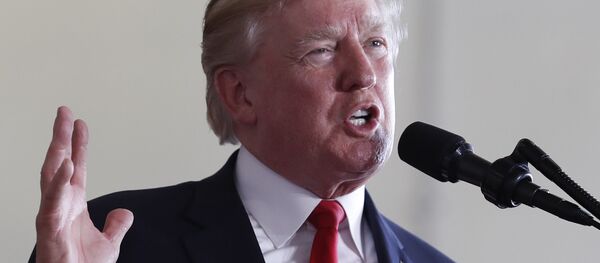"NAFTA was the worst deal ever made in the history of the world," said Trump during his presidential campaign. "It was a one-way highway out of the United States." Trump vowed to renegotiate NAFTA in his first 100 days in office.
He missed that goal by a few months, but better late than never. Some were concerned that Trump might simply withdraw from NAFTA entirely, as he did the Trans-Pacific Partnership (TPP).To many of President Trump's supporters, NAFTA represents a weakening of American economy to serve foreign interests. Trump has promised to bring jobs home and decrease the trade deficit.
But unlike the TPP, the US was already a signatory of NAFTA and withdrawal would be a major shock to the economy. As a result, business interests and American farms that found lucrative markets abroad opposed a NAFTA termination.
"I was going to terminate NAFTA as of 2 or 3 days from now," Trump said in late April, but then Mexican president Enrique Pena Nieto and Canadian prime minister Justin Trudeau "called me and they said, 'Rather than terminating NAFTA, could you please renegotiate?' "
Now, Mexican and Canadian delegates have arrived in Washington to begin a renegotiation. But what changes do the three nations hope to see in the trade agreement, which turned 23 years old in January?
Jaime Reusche, vice president of bond credit rating giant Moody's in charge of operations in Mexico, told NPR that he expects the changes to be "relatively modest" and "departing from much of the rhetoric of the campaign."
According to documents released by Washington, the US is seeking to reduce their trade deficit as their primary goal. Washington also wants to have more freedom to slap Canada and Mexico with tariffs if they see fit, and Trump has pushed for stricter regulations on which goods benefit from NAFTA and which are considered foreign, such as a Canadian-made car whose parts came mostly from China.
While NAFTA has a conflicted legacy in Mexico, with many working-class individuals opposing it for failing to live up to the lofty promises made when the agreement was first proposed, the Mexican delegation has presented the fewest proposed alterations to the agreement. Other than a few matters like environmental standards, they are expected to push hard to keep the agreement as similar as possible.
Canada, which has benefited from NAFTA by most metrics, has two main demands: freer movement of Canadian professionals through the US and Mexico and fewer "Buy American" tenets for US government contracts that favor American companies over Canadian ones. The Trump White House is expected to push back against both of these.
The controversial Chapter 11 of the agreement, which allows individuals or organizations to sue the governments of Canada, Mexico, and the US for having laws that place de facto trade barriers, is also up for review. Another major concern is to update NAFTA to include technologies that didn't exist in 1993, such as e-commerce. NAFTA has not been updated or renegotiated since it was signed.
A major overhaul is unlikely, as the system is deeply ingrained in the economies of the three signatories. "Perhaps it's a parallel to the health care issue where they realized to actually be able to make significant changes that don't hurt anybody, it becomes very challenging to actually change," Reusche says.





